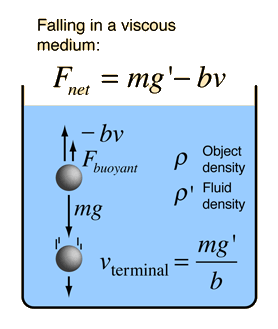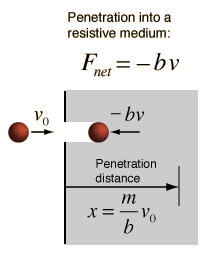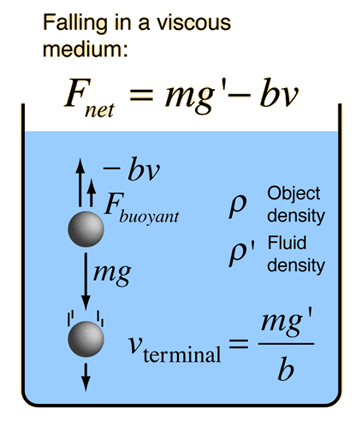Sinking Object
For the description of an object sinking from a rest position, both the buoyant force and viscous resistance must be included.
The velocity at time t can be stated in terms of the terminal velocity and the characteristic time.

The distance traveled in time t is

This motion can be modeled for a spherical object using the expression for viscous resistance in terms of the fluid viscosity.
Calculation notes: You may explore variations on this problem by entering numbers and clicking outside the box to initiate the calculation. Default values will be entered for unspecified parameters, but all parameters may be changed. If you enter a mass, the radius will be calculated and vice versa. The main calculation is presumed to be that of calculating velocity and distance at a specified time, but if you enter a final velocity, a time for that velocity will be calculated. In that case you must enter a velocity less than the terminal velocity to get a physically meaningful result. It might be helpful to calculate the time associated with a specified distance, but that calculation is transcendental and must be solved numerically.
|






 .
.




 .
. .
.